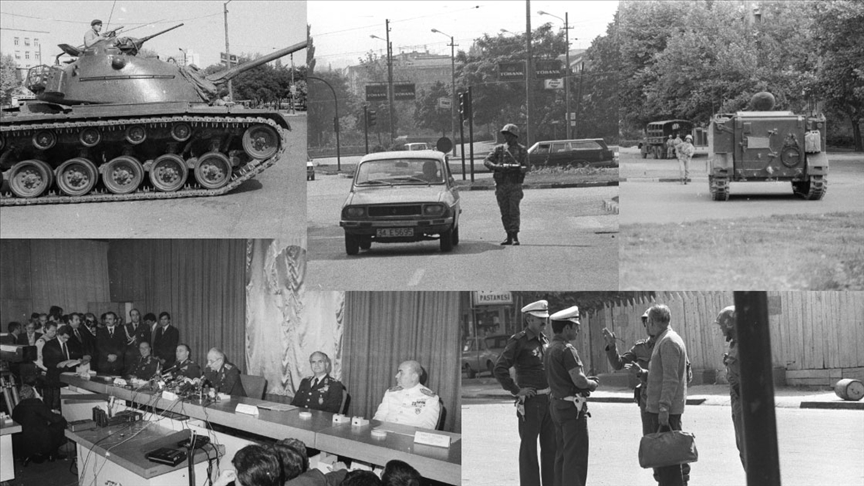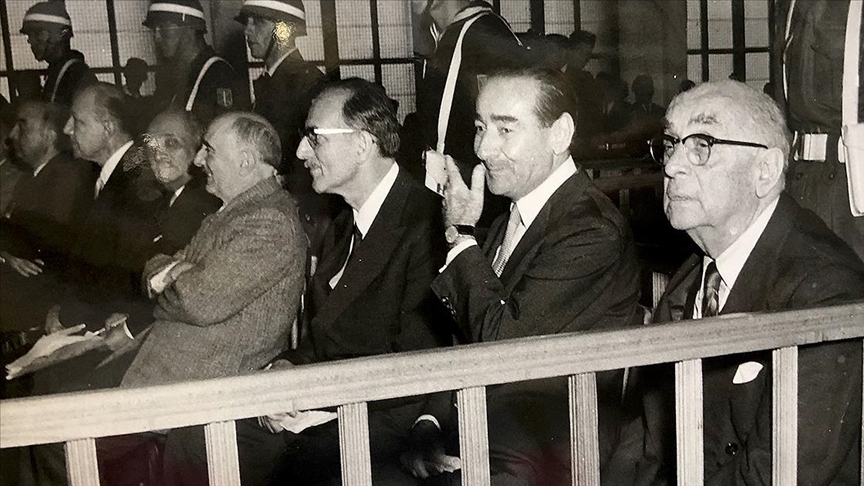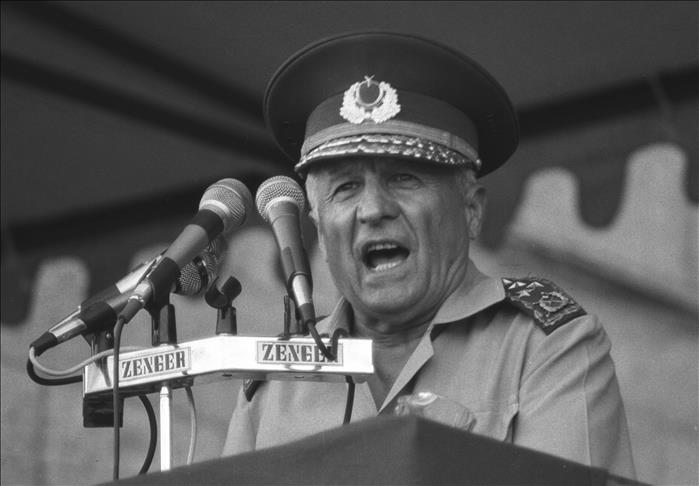
Türkiye experienced one of its bloodiest military coups on September 12, 1980 in republic era. The army, viewing itself as the guardian of the state, intervened after several previous interventions in the country's democratic journey.
The first coup occurred on May 27, 1960, aimed at disrupting the multi-party system established in Türkiye. The coup leaders executed Prime Minister Adnan Menderes, Foreign Minister Fatin Rustu Zorlu and Finance Minister Hasan Polatkan.
Eleven years later, on March 12, 1971, the military intervened against the Justice Party government led by Prime Minister Suleyman Demirel.
The coup leaders forced Demirel to resign and targeted student movements, leading to the execution of socialist student leaders Deniz Gezmis, Yusuf Aslan and Huseyin Inan on May 6.

The 1980 coup, notorious for its brutality, followed the "Flag Operation" plan initiated on July 11, 1980. Although initially postponed because of a vote of confidence, the coup was executed in the early hours of Sept. 12.
After the coup, the National Security Council (NSC), led by General Kenan Evren, assumed full control.
The NSC, which included Land Forces Commander General Nurettin Ersin, Air Forces Commander General Tahsin Sahinkaya, Naval Forces Commander Admiral Nejat Tumer and Gendarmerie Commander General Sedat Celasun, abolished the constitution and dissolved the Turkish Grand National Assembly (TBMM).
The new regime intensified anti-democratic measures and imposed political bans.
The coup regime issued numerous death sentences. On October 9, 1980, leftist Necdet Adali and nationalist Mustafa Pehlivanoglu were executed. Additionally, the execution of 17-year-old Erdal Eren was carried out despite two annulments by the Supreme Court.
General Evren's statement –"If not executed, should we keep him alive?" – reflects the regime’s harsh stance on dissent.

According to official figures, the aftermath of the coup was as follows: